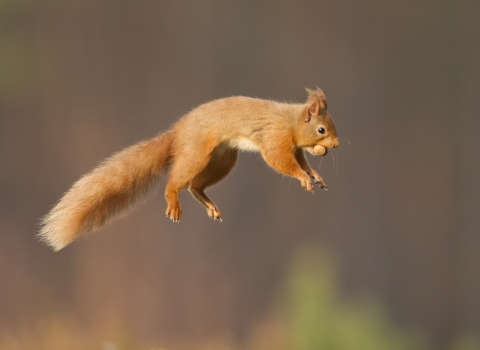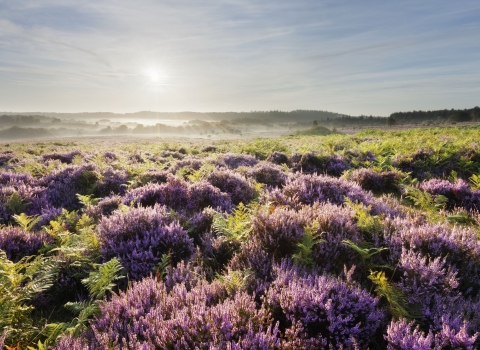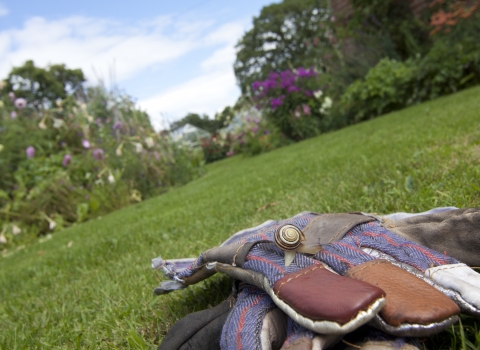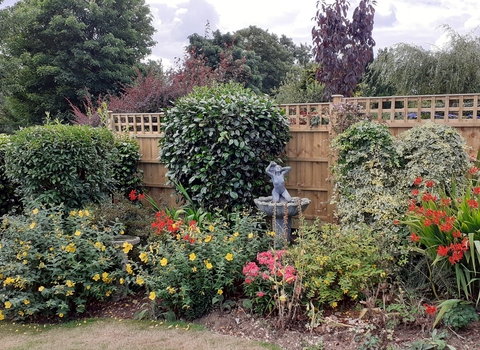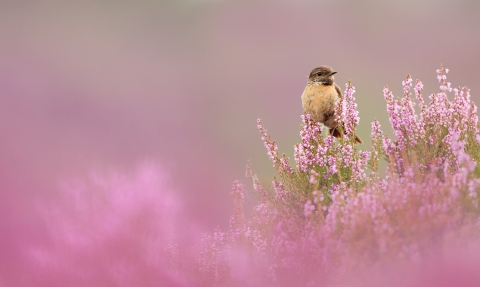
Stonechat © Ben Hall/2020VISION
Wildlife information and advice
Discover the world around you
Hampshire and the Isle of Wight has some of the most spectacular and internationally recognised habitats and wildlife in the country. We have beautiful and rare creatures like the Duke of Burgundy butterfly, internationally important populations of Brent geese and endangered species such as the Red Squirrel.
There are also extremely important habitats such as the internationally renowned lowland heath of the New Forest, vital seagrass beds in Portsmouth and chalk rivers such as the Itchen that support an abundance of wildlife including otters, water crowfoot and crayfish.
Wildlife Frequently Asked Questions (FAQs)
Here are some answers to questions that we get asked regularly.
Q: What should I do if I have found injured wildlife?
A: We are not an animal welfare charity and do not have the facilities or expertise to deal with wildlife rescues. Please contact the RSPCA or a local wildlife rescue centre and they will be able to give the best advice. If you find injured wildlife or livestock on one of our reserves, please contact us on 01489 774400. If you find an injured hedgehog, please contact the British Hedgehog Preservation Society.
Injured birds
Unless the bird is in immediate danger, please leave it where it is. In spring and summer, birds are beginning to leave the nest and fledglings can often be seen on the ground, seemingly alone. This is not often the case, and the parents will usually be close by searching for food and keeping a close eye on their chick. If the bird is in a busy road or footpath, or is in danger of being attacked by predators, the bird can be moved a minimal distance, but must still be in hearing range of the parents who will be nearby.
Q: How can I improve my garden for wildlife?
A: There are numerous ways in which you can help wildlife through creating a wildlife friendly garden. Visit our Wildlife Gardening section for full details.
Hedgehogs
Hedgehogs do visit gardens and will often hibernate there if there is a suitable habitat available. The hedgehog hibernation period is (in general) from November to March but is dependent on weather conditions and food availability. If you put food out in your garden for hedgehogs they will often take advantage of the extra food for as long as possible before resorting to hibernation. Hedgehogs will often stop visiting a garden in winter if there are no suitable areas for hibernation. Piles of logs and leaves in a dry area protected from the wind can provide an excellent hibernation habitat for hedgehogs. If you would like to encourage your hedgehogs to stay for the winter, why not create an area like this in your garden.
Q: How can I request a wildlife survey ?
A: We provide a land advice service Arcadian Ecology to land owners, farmers, community groups, schools and residents that want help with improving their local patch for the benefit of wildlife (please note there may be a charge). If you are looking to build on an area of land and need to know what species are found there first, you will need to employ the services of an ecological consultant. To request existing ecological data for your area, contact Hampshire Biodiversity Information Centre.
Q: How can I remove unwanted wildlife from my garden?
A: This is not a service that we provide and we encourage people to embrace the wildlife found in their gardens. Amphibians and reptiles along with several other species are protected under the Wildlife and Countryside Act, and are important components of our biodiversity.
If it is deemed absolutely necessary i.e. the animal was at risk of harm, you can talk to a licensed ecological consultantabout the safe, responsible and legal removal of wildlife.
Q: How can I help record local wildlife sightings?
A: Being able to collect data about what wildlife is found where is vital to our efforts to protect and restore nature locally. Your records are best sent to the relevant recording group so that they are captured and recorded accurately and can help inform decisions.
Crayfish
If you would like to report a sighting of crayfish please get in touch with UK Crayfish.
Q: Who should I contact about wildlife crime?
A: The Wildlife Trust has no legal power to stop any direct threats to wildlife. If you believe a protected species or habitat is under immediate threat please contact your local police station via 101 and ask to speak to a Wildlife Crimes Officer.
For further information about wildlife crime and how to report it, click here.
Legal Protection for Wildlife
A number of species are afforded legal protection under the Wildlife & Countryside Act (1981). For example the more common species of reptile (Adder, Common Lizard, Grass Snake & Slow Worm) are listed on Schedule 5 and are protected against killing, injury and sale under Section 9, making it an offence to:
• Intentionally or recklessly kill or injure a reptile
• Sell, offer or expose for sale, or have in your possession, or transport, for the purpose of sale, any live or dead specimen or anything derived from a reptile
You can find out more about protected species on the Natural England website.
Q: Can the Trust help with a local planning application that may affect wildlife?
A: We have very limited capacity to respond to planning applications individually and therefore prioritise our efforts to target larger developments and those that will have severe impacts on local wildlife. Read more about our campaigning on land use and its impact on wildlife.
If you haven’t found the answer to your wildlife question above, you can contact us on wildline@hiwwt.org.uk
Q: Can you tell me what I've found?
A: We love seeing your photos and videos of local wildlife, but we often can't respond quickly and help you identify species. Have a look at our species explorer. If you can't find the answer there then there are lots of online groups that might be able to help - why not try posting your query in the 30 Days Wild Facebook group or try our growing Team Wilder group. There are also lots of specialist communities and species groups that you can contact.

